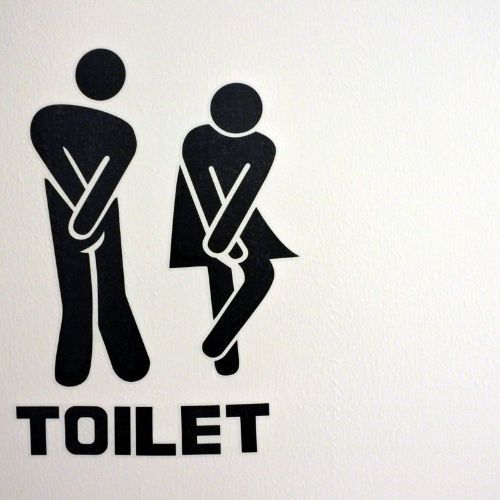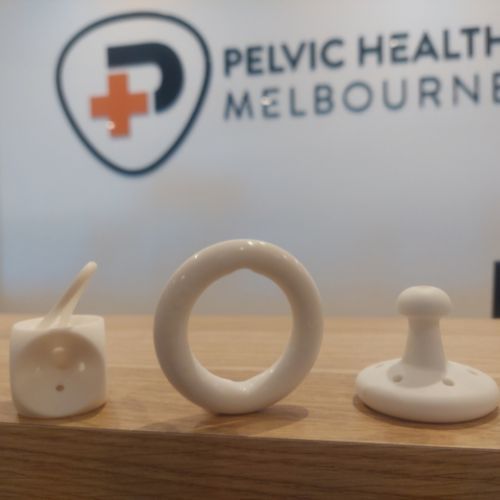By Kylie Conway
•
March 17, 2025
Pregnancy is a beautiful journey, but it comes with its own set of challenges, including pelvic girdle pain (PGP). Pelvic girdle pain during pregnancy is a common yet often misunderstood condition that affects many women as their bodies undergo significant changes. While it can be distressing, there are ways to manage the pain and continue enjoying your pregnancy. In this blog, we'll dive into what pregnancy-related pelvic girdle pain is, why it happens, its symptoms, and how you can manage it effectively. What is Pregnancy-Related Pelvic Girdle Pain? Pelvic girdle pain refers to discomfort or pain in the pelvic area, particularly around the joints that connect the pelvis to the spine, including the sacroiliac joints (SI joints) and the pubic symphysis. During pregnancy, the body undergoes numerous physical changes to accommodate the growing baby, which can lead to instability or misalignment in the pelvic area. This can result in pain that affects daily activities like walking, sitting, and even sleeping. PGP during pregnancy is often caused by the loosening of ligaments and joints in the pelvic area due to hormonal changes, particularly the hormone relaxin , which helps prepare the body for childbirth. While this process is natural, it can make the pelvis more vulnerable to strain and discomfort. Common Symptoms of Pregnancy-Related Pelvic Girdle Pain Pelvic girdle pain can present in various ways, but some of the most common symptoms include: Pain in the pelvic region : This pain can be located in the lower back, hips, groin, or pubic area. It may feel sharp, aching, or throbbing. Pain while sitting or standing : Activities like sitting for long periods, transitioning from sitting to standing, or standing for extended periods can trigger or worsen the pain. Difficulty walking : Many pregnant women with pelvic girdle pain find walking uncomfortable or notice they have a limp or altered gait due to the pain. Pain during certain movements : Movements such as climbing stairs, turning in bed, or lifting one leg may intensify pelvic girdle pain. Reduced mobility : The pain can make it harder to move freely, bend over, or perform other normal activities. Pain that worsens with physical activity : Walking, lifting, or any activity that puts strain on the pelvis may aggravate the pain. The intensity of pelvic girdle pain can vary, and it may fluctuate during different stages of pregnancy. What Causes Pelvic Girdle Pain During Pregnancy? Pregnancy-related pelvic girdle pain is primarily caused by hormonal changes, weight gain, and postural shifts. Below are some of the key factors that contribute to PGP during pregnancy: Hormonal Changes During pregnancy, your body produces the hormone relaxin , which helps relax and loosen the ligaments in the pelvis in preparation for childbirth. While this is essential for allowing the pelvis to expand during delivery, it can also lead to joint instability, making the pelvic area more prone to discomfort and misalignment. Increased Weight and Pressure As your baby grows, the weight gain during pregnancy puts additional pressure on the pelvis and spine. The added weight can exacerbate pelvic girdle pain, especially as the pelvis tries to accommodate the growing baby. Postural Changes As the pregnancy progresses, your body’s center of gravity shifts. You may find yourself leaning back or altering your posture to compensate for the weight of your growing baby. These postural changes can strain the pelvic joints and muscles, leading to pain and discomfort. Muscle Imbalances Pregnancy can cause changes in the pelvic muscles, especially as the body adjusts to the growing belly. Weak or tight muscles in the pelvic floor, lower back, or hips can contribute to pain in the pelvic girdle area. Previous Injuries or Conditions If you've had a previous pelvic injury, such as a fall, pelvic surgery, or conditions like sciatica or hip pain, you may be more susceptible to pelvic girdle pain during pregnancy. How to Manage Pregnancy-Related Pelvic Girdle Pain Although pelvic girdle pain during pregnancy can be uncomfortable, there are several ways to manage the condition and reduce discomfort. Here are some effective strategies: Pelvic health physiotherapist Seeing a pelvic health physiotherapist is one of the most effective ways to manage PGP. A physiotherapist can guide you through exercises to strengthen the muscles that support your pelvis and improve posture. They may also teach you techniques for better body mechanics to prevent strain on the pelvic area. Pelvic Support Belts Wearing a pelvic support belt or maternity belt can help relieve pressure on the pelvic joints and provide additional stability. These belts can be especially helpful when walking, standing for long periods, or during physical activities. Posture and Body Mechanics Maintaining good posture is key in managing pelvic girdle pain. Try to sit with your back straight and your pelvis aligned. When getting up from a seated position, use your arms to support yourself, and avoid twisting your body. If you need to stand for a long time, try to shift your weight between your legs or use a footstool to rest one leg. Heat and Cold Therapy Applying a warm compress or heat pad to the pelvic area can help relax tense muscles and relieve discomfort. On the other hand, if you're experiencing inflammation, ice can help reduce swelling and numb the pain. Always wrap ice or heat in a cloth to protect your skin. Avoid Prolonged Sitting or Standing Avoid sitting for long periods or standing in one position for too long, as this can exacerbate pelvic girdle pain. Take breaks to stand, walk around, or stretch if you're sitting for an extended time. When sitting, try using a cushion or pillow for added support. Gentle Exercise and Stretching Low-impact exercises, such as swimming, walking, or prenatal yoga, can help maintain mobility and relieve tension in the pelvic region. Stretching the lower back, hips, and legs can also help reduce stiffness and improve circulation. Always check with your healthcare provider before starting any new exercise routine during pregnancy. Sleeping Position Adjustments Finding a comfortable sleeping position is crucial. If you're experiencing pelvic girdle pain, try sleeping with a pillow between your knees to reduce strain on the pelvic area. Sleeping on your side with a slight bend in your knees can help alleviate pressure on your pelvis. Pain Relief If the pain becomes difficult to manage, talk to your doctor about safe pain relief options during pregnancy. While over-the-counter pain relievers like ibuprofen may not be recommended during pregnancy, your doctor may suggest other options to help reduce pain. When to Seek Medical Help If pelvic girdle pain becomes severe or if it significantly interferes with your daily activities, it’s important to consult with your healthcare provider. They may recommend additional treatments or help rule out other conditions that could be contributing to the pain. You should also seek medical help if you experience other symptoms, such as numbness, tingling, or weakness in your legs, as these could indicate a more serious issue. Pregnancy-related pelvic girdle pain is a common condition that many women experience, but it doesn’t have to control your pregnancy journey. With the right treatment plan, including physiotherapy, posture adjustments, and self-care practices, you can manage the pain and continue to enjoy this special time in your life. Always remember to consult with your healthcare provider for personalized guidance on managing pelvic girdle pain during pregnancy. Taking care of your body is essential for both you and your baby’s well-being, and with the right approach, you can find relief and continue to feel your best. If you found this blog helpful, consider sharing it with other pregnant women who may be dealing with pelvic girdle pain. The more we share knowledge, the more we can help each other through the challenges of pregnancy.

















